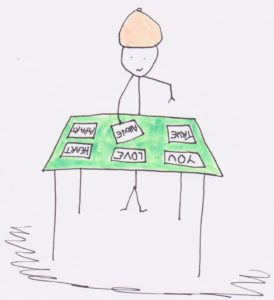
Before I get started on this, let me say two things. First off, I am complaining about what Wikipedia calls “Contemporary R&B”, not real R&B. Mariah Carey, not Marvin Gaye. Secondly, I am aware that this isn’t a purely American phenomenon, but it’s American enough that I can stick it up here and still sleep at night.
That said, here goes.
I’m not a music afficionado. I like listening to things like Coldplay and Badly Drawn Boy. In my head they’re the music that cool people listen to, but in twenty years my kids are going to regard them with the same sort of scorn as I currently regard Phil Collins. It’s old people’s music, with easy-going chords and three minute songs. I understand that. Hey, I’m not really a music guy.
I’m enough of a music guy, however, to realise that the dribbling genre of musical wallpaper paste that calls itself “R&B” is an offense against taste so vicious that hanging must surely be the only valid public response. If you’re driving along listening to the radio, there are several ways to detect that you’ve accidentally stumbled upon a contemporary R&B station. Check for the following:
- Ability to predict the next line of a song you’ve never heard before (“you’re the one I love / you’re the one I’m dreaming of” et cetera)
- Use of the words “brother” or “sister”
- Song lines followed by clarifications like “yes he did” or “oh no, no”, just in case you couldn’t grasp the depth of the lyrics and required some further clarification of what was going on
- Prodigious use of “mm-hmm” or “ooh” when a suitable “love-of”/”heart-apart”/”you-true” rhyme is unavailable
- Did that song finish? Is this another one?
Perhaps the most offensive aspect of this Bud Light of musical genres is the fact that it stole its name from a completely unrelated and perfectly decent form of music. In the 1950s, R&B music was the great creative outpouring from a misrepresented black America – as it took off in popularity, it became the unifying sound of the grass-roots civil rights movement in a way that nothing written or spoken could easily manage. There was real feeling behind it, and real power in what it said.
By contrast, contemporary R&B appears to be the disembodied voice of dumpy, angst-ridden fourteen year olds with ill-concieved chips on their shoulders about what a hard time in life they’re having. Ladies and gentlemen, let me introduce you to the elevator music of the next decade. Watch out, Phil Collins.

I’m sure you are a bit older than me (I’m 21) but I have to admit I can actually enjoy Phil Collins (how can you hate “In the Air Tonight” or “Sussudio”?) and hate Coldplay. I like to refer to Coldplay as “Radiohead for your mom.” No?
Wow do I hate Phil Collins. But that’s because my office neighbor insisted on playing “In the Air Tonight” over and over for 8 hours straight.
Hi,
I just found your blog via the Septic’s webpage. It’s funny, I like it. Fixed trolley wheels you say? Curtains between toilet facilities and pulling teeth just for kicks?! Be careful over there mate, it’s sounds most strange!
Lindy
Geordieland
(with a full compliment of wisdom teeth!)
Excuse me, but let me clarify something here. Mariah Carey is one of the few true artists carrying on the tradition of greats like Marvin Gaye; if you knew anything about the woman’s music beyond the commercial chart releases then you would know that, but you quite obviously don’t. I actually agree wholeheartedly with your point, but keep it to the people who actually embody the essence of what you’re saying, please. Rihanna, anyone.
PS. If you knew a bit more about Marvin Gaye’s career also, you be surprised at how many similarities run between the 2. There’s a thing or 2 to learn in there.